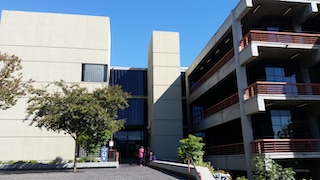In early December 1, 2017, the Los Angeles City Council set forth new regulations for the operation of legal marijuana dispensaries (for both medicinal and recreational use), cultivators, distributors and manufacturers to become effective January 1, 2018. These regulations still need to be signed into law by the mayor, which is expected.
These regulations dictate the legal standards by which such businesses within the City of Los Angeles must operate. Individual cities not within Los Angeles, i.e. Torrance, Redondo Beach or Rancho Palos Verdes, may have separate standards that control similar businesses operating within their borders. Similarly, businesses and entrepreneurs hoping to tap into California’s estimated $6 billion marijuana cannabis industry in cities outside Los Angeles County will have other standards to follow to.
There are two big features of the City of Los Angeles regulations that merit mention and understanding. First, it is required that such businesses obtain a valid license to operate, even a 120-day provisional license (available January 1, 2018, but which can be applied for now), or be subject to prohibition and severe financial penalties. The Los Angeles City Attorney’s office could seek fines of up to $20,000 for each day the business is in violation of city regulations.
Likewise, working with an unpermitted cannabis business can be a misdemeanor carrying penalties of up to a $1,000 fine plus penalties and assessments (about $4,500) and six months in county jail. However, until July 1, 2018, licensees may conduct cannabis activities with any other licensee. After July 1, licensees may only conduct adult use (A) or medical (M) business with other A or M licensees (A and M licensees can co-locate now, whereas in the past it was not allowed).
 Bellflower Courthouse
Bellflower Courthouse
To get a 120-day provisional license, operators must submit proof of local authorization, the property owner’s consent, a seller’s permit (obtained through the city) and an employer identification number.
Second, the City of Los Angeles licensing scheme provides preferential processing of license applications to those Los Angeles residents located in certain geographically located communities historically affected by the “war on drugs,” a term coined by Richard Nixon in 1970. Such areas are expected to be south Los Angeles, central Los Angeles, downtown, Watts and East Hollywood.
Under this “social equity” program, Los Angeles businesses in certain low-income areas targeted for cannabis-related arrests at a higher rate than elsewhere will be processed at the rate of two for each general operator. In other words, operators in certain “social equity” zones will have licenses applications processed at twice the rate of other areas.
The businesses that are expected to benefit first are the 100 or more medical marijuana dispensaries that were granted immunity under Proposition D, a 2013 ban on marijuana businesses in Los Angeles, and businesses that already have business tax registration certificates.
Nonetheless, the number of such businesses will be limited to a certain amount based on the number of residents in each area and the square miles of the social equity zone. The businesses will also need to have a 700-foot buffer between retail marijuana shops and area of “sensitive uses,” such as schools, parks, libraries and day-care facilities. Cultivators, manufacturers, delivery services and other non-retail businesses must still be at least 600 feet away from schools.
There remain a few ambiguities in the regulations that will need clarification eventually. For example, right now there is no limit indicated on the total acreage allowed for cultivation. However, we believe that this issue will be addressed soon.
For more information about marijuana issues, please click on the following articles:
- What Are California’s Regulations for Implementing Prop 64?
- What Are My Rights to Marijuana Now That Prop 64 Has Passed?
- How Are the Cities in Palos Verdes Implementing Prop 64?
Contact us.  Bellflower Courthouse
Bellflower Courthouse